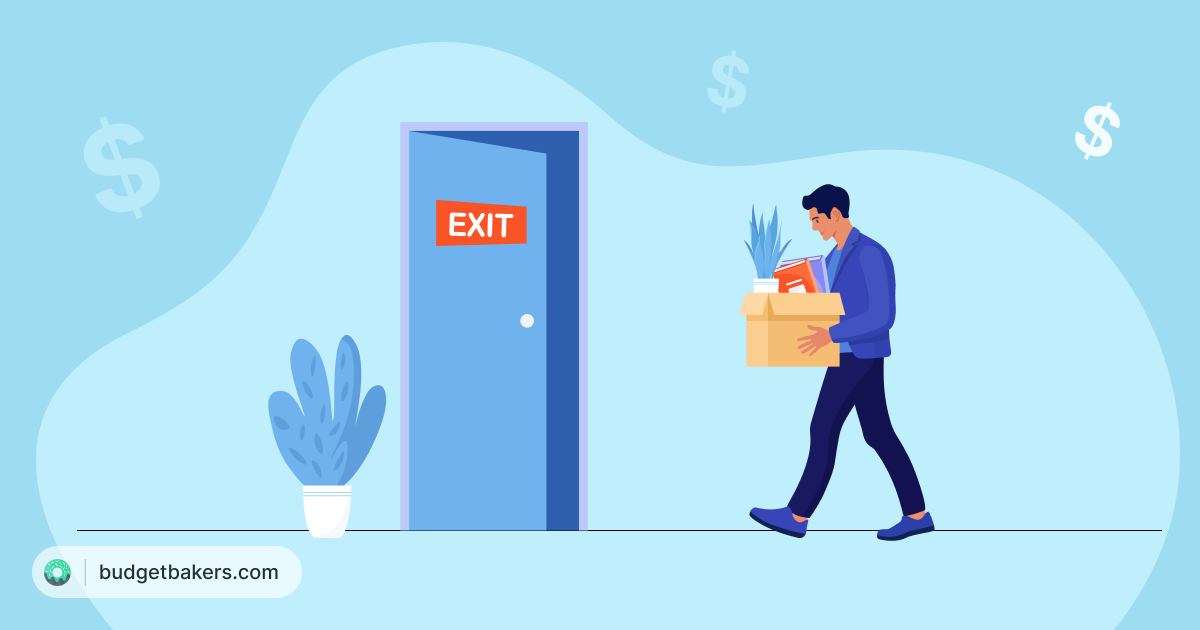Most of us have debts. In fact, studies have shown that almost 33% of Americans are drowning in debt. And, the most common question that those who are in debt ask is, “What should I do first? Should I pay my debt off or should I save?”
Your parents may have taught you to pay back every penny you owe and there’s nothing wrong with that. But, in these times, paying off the debt completely can be quite challenging, especially if you do not have enough money in your reserves, to begin with.
So, to help you decide what you need to do first, pay off debt or start saving, here are some things you need to consider.
Do your debts have high interest rates?
Now, not all debts are equal. There are some that offer reasonable interest rates, while there are some others (like credit cards) that have higher rates. If you have a debt that charges a high interest rate (typically any value more than 15% can be considered high), it is better to pay it off immediately. Failure to do so would mean that you’ll end up shelling out more money to pay it off.
Verdict: If you have debts with high interest rates, pay them off first and then start saving.
Do you have an emergency fund?
Life is unpredictable. Anything can happen and you need to be prepared to face both good and bad surprises. It could be an accident, illness or the loss of your job. Medical expenses and unexpected bills add up too soon. What matters here is: do you have the means to pay for it all?
Sadly, a staggering number of people still do not have money set aside in an emergency fund. So, if you don’t have money set aside in a rainy day fund, then it is best that you start saving right now. Doing so will allow you to have a cushion when such unexpected things happen. It will also save you from going into more debt.
Verdict: If you don’t have an emergency fund yet, you should start saving before you pay off debt.
Do you need a large amount of cash soon?
Are you planning on flying to the Bahamas or do you want to start a business in the next 5 years? All of us have goals and if your goal is one that requires immediate funding, then you have to think about where the money will come from. Ask yourself whether your existing debt is pulling you back from achieving your goals. If you need to use your money to fund whatever it is that you need and want to do, you can delay the big debt payments for a while. This holds true for all of your debts, be it a cash advance, credit cards or personal loans.
Verdict: If you need to fund an immediate life goal, you can save first and pay off your debt after that.
Do you want to reduce your monthly payments?
The best way to reduce your monthly payments and free up some cash is by actually focusing on paying down the high-interest debts you’ve accumulated. Once you start allocating more funds towards paying down debt and follow a debt avalanche strategy, then you’ll be able to pay off your debts faster and free up cash for savings and other expenses faster.
Verdict: If you want to reduce your overall monthly payments, focus on paying down your debts first.
Do you expect to save up enough to pay off debt?
The big question here is what are you saving for? Some people save for meeting short-term goals like holidays or a big purchase. But some others save to pay off their debt. So if you see yourself paying off your debt with your savings (or at least with a part of it), then focus all your efforts on saving. Keep paying only the minimum payments on your debt while you build your savings to pay off the whole debt.
Verdict: If you’re saving to pay off debt, then focus your efforts completely on saving.
Do you want to boost your credit score?
This is an important thing to consider if you’re thinking of buying a big asset like a house or planning to refinance your mortgage in the near future. Delaying your debt repayment is not a good idea in this case because it may affect your credit score. And, your credit score is what will determine if you’ll get a good deal on future debts or refinancing attempts.
Verdict: If you need to boost your credit score, start paying off your debt first.
Finally…
The decision of whether to pay your debt off completely or save your money entirely depends on your financial situation. Because well, personal finance is, indeed, personal.
In short, you should prioritise paying down your debt if:
-you have debts with high interest rates
-you want to lower your overall monthly payments
-you need to boost your credit score
And, you should focus on saving first, if:
-you don’t have an emergency fund yet
-you have goals that require instant access to cash
-you’re saving to pay off your debt
Over to you
What are the factors that affect your decision of whether to save first or pay down your debt? Share your ideas and suggestions with us in the comments section below.
Lidia Staron is a content writer for OpenCashAdvance.com, specializing in personal finance and small business issues.




